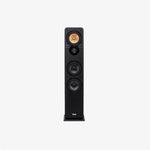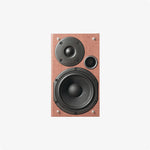The integration of artificial intelligence (AI) into electronic products marks a revolutionary chapter in technology, transforming the way we live, work, and interact with the world. From smart homes and autonomous vehicles to personalized healthcare and advanced robotics, AI is embedding itself into electronics, creating smarter, more responsive, and more efficient systems. This synergy is not only enhancing the capabilities of electronic devices but also redefining our daily experiences and future possibilities.
1. Smart Homes and Personal Assistants
One of the most visible impacts of AI in electronics is the rise of smart homes, where interconnected devices work seamlessly to create a more convenient and efficient living environment.
Key Developments:
Voice-Activated Assistants: AI-powered personal assistants like Amazon's Alexa, Google Assistant, and Apple's Siri have become integral to smart homes. They can control lighting, thermostats, security systems, and entertainment centers, responding to voice commands and learning user preferences over time.
Home Automation: AI enables predictive home automation, adjusting settings like temperature and lighting based on patterns and routines. This not only enhances comfort but also improves energy efficiency.
2. Healthcare and Personalized Medicine
AI's integration into healthcare electronics is revolutionizing patient care, diagnostics, and treatment, making medicine more personalized and proactive.
Key Developments:
Wearable Health Monitors: AI-powered wearables track vital signs, physical activity, and sleep patterns, providing real-time health data and early warnings for potential issues. These devices can alert users and healthcare providers to abnormalities, enabling timely interventions.
Diagnostic Tools: AI algorithms analyze medical images, lab results, and patient records with greater accuracy and speed than traditional methods. This improves diagnostics for conditions like cancer, cardiovascular diseases, and neurological disorders, leading to better patient outcomes.
3. Autonomous Vehicles and Transportation
The integration of AI in automotive electronics is paving the way for autonomous vehicles, transforming transportation with enhanced safety, efficiency, and convenience.
Key Developments:
Self-Driving Cars: AI systems in autonomous vehicles process vast amounts of data from sensors, cameras, and GPS to navigate and make real-time decisions. This reduces the risk of human error and has the potential to decrease traffic accidents and congestion.
Smart Traffic Management: AI in traffic management systems can predict and manage traffic flow, optimizing routes and reducing delays. This contributes to more efficient and sustainable urban transportation networks.
4. Consumer Electronics and Personalization
AI is making consumer electronics smarter and more personalized, enhancing user experiences across various devices.
Key Developments:
Smartphones and Devices: AI in smartphones enables advanced features like facial recognition, voice recognition, and predictive text. These features improve security, accessibility, and user convenience.
Entertainment Systems: AI-powered recommendation engines in streaming services analyze user preferences to suggest content tailored to individual tastes, creating a more engaging and personalized entertainment experience.
5. Industrial Automation and Robotics
AI's integration into industrial electronics is driving the next wave of automation, increasing productivity, precision, and safety in manufacturing and other sectors.
Key Developments:
Robotic Process Automation (RPA): AI-powered robots can perform repetitive tasks with high accuracy and speed, freeing up human workers for more complex and creative activities. This enhances efficiency and reduces operational costs.
Predictive Maintenance: AI systems analyze data from machinery to predict maintenance needs before failures occur, minimizing downtime and extending the lifespan of equipment.
6. Enhanced Security and Surveillance
AI is transforming security and surveillance electronics, making systems smarter and more responsive to potential threats.
Key Developments:
Facial Recognition: AI-powered facial recognition systems enhance security by accurately identifying individuals in real-time, improving access control and monitoring.
Intelligent Surveillance: AI in surveillance systems can detect unusual behavior and potential security breaches, alerting authorities to prevent incidents proactively.
Conclusion
The integration of artificial intelligence into electronic products is a perfect match, creating a new era of smart, responsive, and efficient technologies. As AI continues to evolve, its applications in electronics will expand, further enhancing our daily lives and opening up new possibilities for innovation and growth. From smart homes and personalized healthcare to autonomous vehicles and industrial automation, the synergy between AI and electronics is set to redefine our future, making it more intelligent and interconnected than ever before.
Stay tuned as AI continues to revolutionize the world of electronics, bringing forth a smarter, more connected, and more efficient future.



















Leave a comment